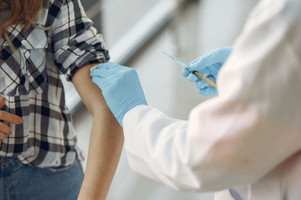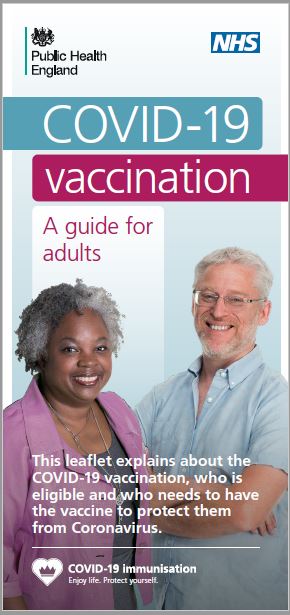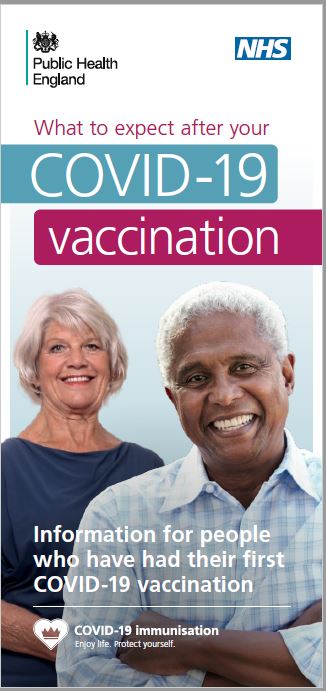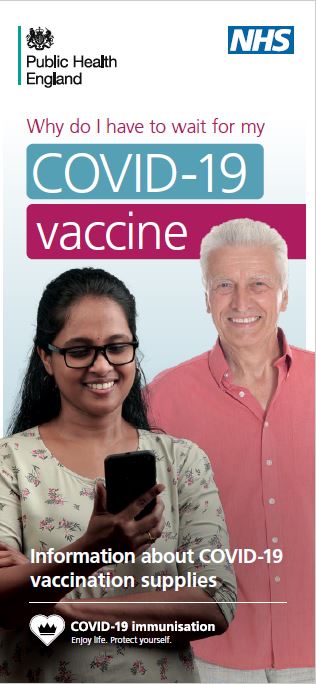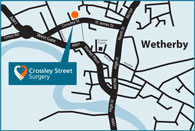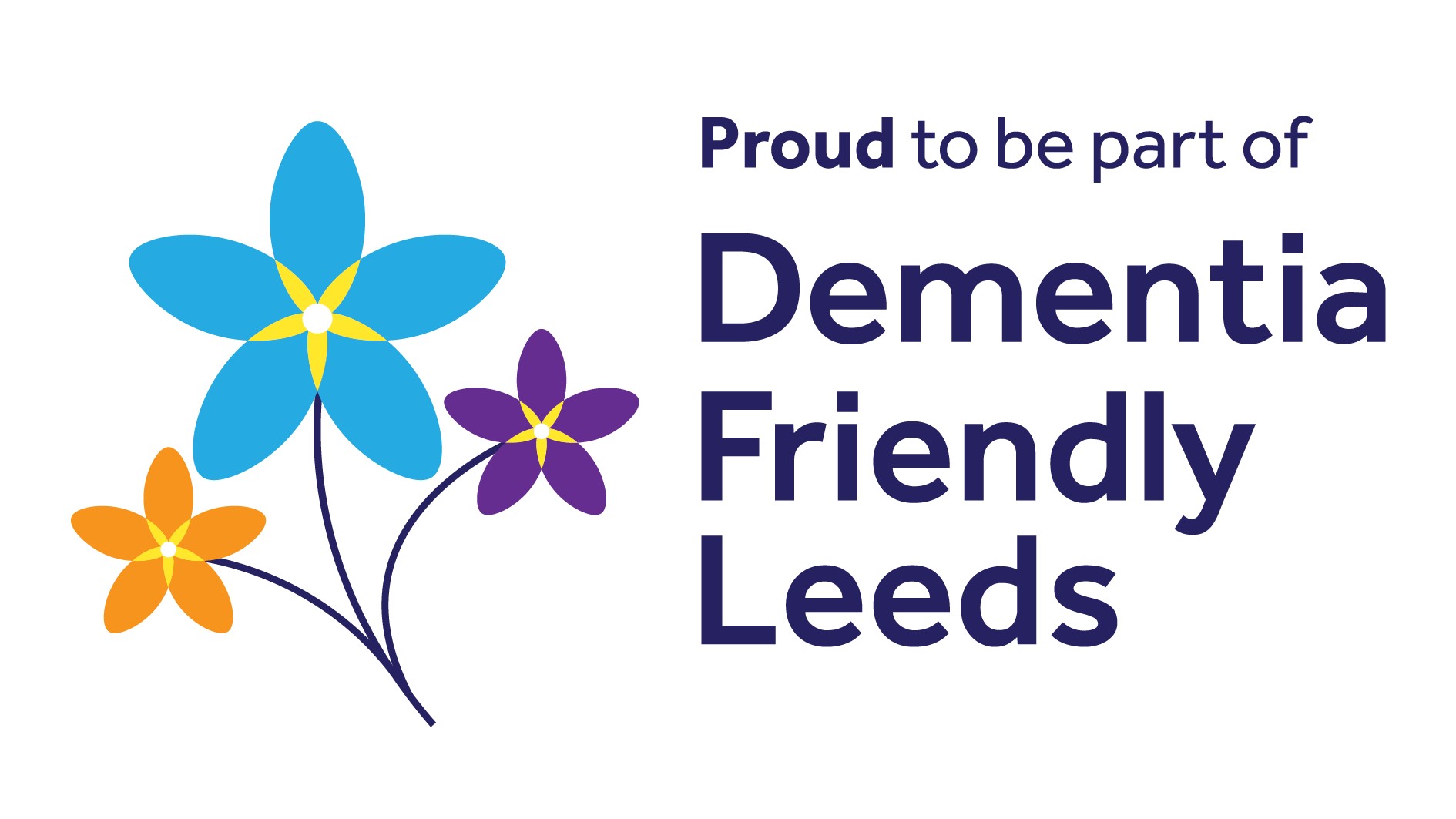Uncategorised
We are aware that there is a lot of misinformation in the media at the moment surrounding COVID-19 vaccinations and potential scams. Unfortunately, there are people out there who try to take advantage of the current situation and may attempt to wrongly obtain personal information or even money from you. But when we do contact you to book your COVID-19 Vaccination, it's important that you feel confident that this invitation has come from the practice. Here are some important things to keep in mind:
We are currently inviting patients to have their vaccination via telephone calls and text messages
This is because our clinics are being arranged at short notice and we don't have the necessary time to send out letters. The text messages we are sending to patients include a link which will ask you to confirm your date of birth and allow you to book your appointment on you phone. If you are concerned about any text messages with links, below is an example of what will be included in the text message from us:
You have been invited to book your COVID-19 vaccinations.
Please note when you click the link below, the only information it will ask for is your date of birth.
If you have had a letter from NHS England and have already booked an appointment at a vaccination centre, please follow the instructions in the link to let us know you'll be having your vaccination elsewhere.
You may also receive an invitation by letter
NHS England are also sending out letters to eligible patients, inviting them to have their vaccination at one of the larger vaccination centres. If you are able to travel to one of these locations, you can contact the number on the letter and book this. If not, you can still wait to be contacted by us.
- Details
Thank you for booking your COVID-19 Vaccination appointments. Please remember the following:
- The Vaccination Clinic is at Wetherby Health Centre, not at Crossley Street.
Wetherby Health Centre is behind Morrisons, on Hallfield Lane (see flyer below). - Please wear a face mask or face covering.
- It will help us if you wear clothing that gives easy access to your upper arm.
- We are trying to limit use of our toilets, so if possible, go before you leave home.
- Do not bring unnecessary bags or belongings into the building.
- Read the Patient Information leaflet prior to your appointment.
- Don’t come if you have COVID symptoms
As it is a new vaccine, we are advised that all patients should be observed for 15 minutes after having it. If someone is coming with you please let them know that your appointment will take around 30 minutes.
- Details
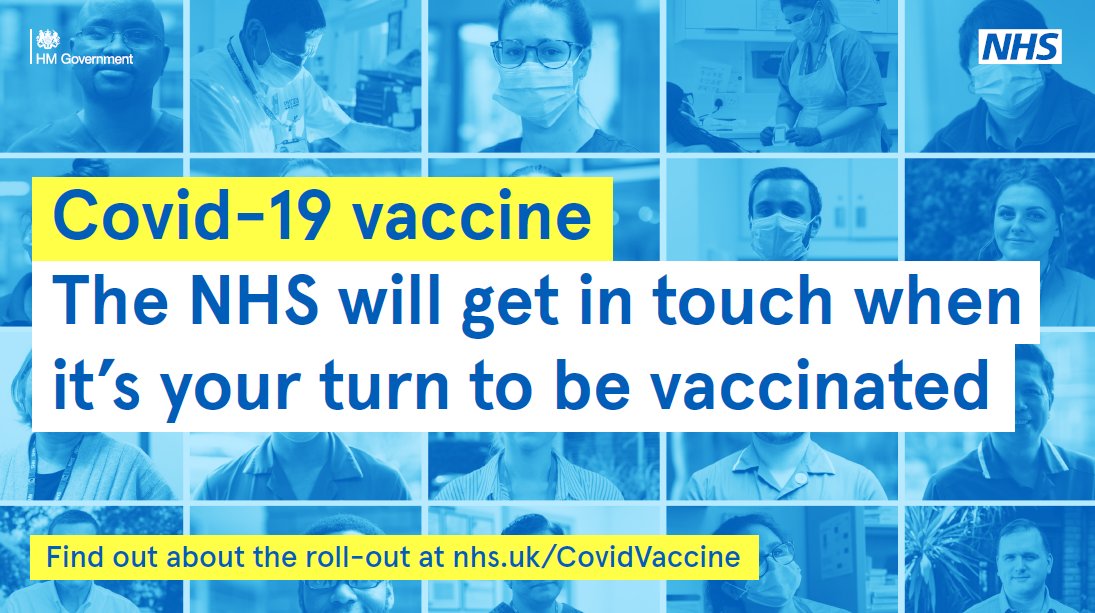 Please DO NOT contact your surgery to seek a vaccine, we will contact you
Please DO NOT contact your surgery to seek a vaccine, we will contact you
The Pfizer BioNTech vaccine has now been approved for use and the NHS will be starting to offer this to priority groups as soon as supplies arrive.
When will a vaccine be available?
The first, limited, deliveries of the vaccine started week beginning 7 December and the NHS is offering them to those who need them most based on the guidance from the Joint Committee for Vaccinations and Immunisations.
Who will get a vaccine?
The vaccine will be offered to those at greatest risk from COVID-19 first, people over 80 years old and prioritised frontline health and social care workers. This is based on the guidance from the Joint Committee for Vaccinations and Immunisations which is available here. As more supplies of the vaccine or alternative vaccines become available it will be rolled out in phases to people aged between 80 and 50 and those who are clinically extremely vulnerable. People will be invited for a vaccine when it is their turn so please avoid contacting your local hospital or GP practice.
Where and when can I get a vaccine?
To start with, vaccines will only be available at hospital ‘hubs’ where the Pfizer vaccine can be stored safely. However, arrangements are also being put in place to offer vaccines from a number of different locations as more supplies and different vaccines become available. These include local vaccine services provided by GPs and pharmacists and new dedicated vaccination centres to make sure that everyone who needs a vaccine is able to get one.
We will be contacting more and more people over the coming days and weeks, as well as protecting those of our staff who are at greatest risk. Please don’t contact your NHS to seek a vaccine, we will contact you
Further information and how you can help us
We will share further information with you as it becomes available. In the meantime, there are three things people can do to help:
- Please don’t contact the NHS to seek a vaccine - we will contact you when it’s the right time to you to have yours
- Please act on your invite when it comes, and make sure you attend your appointments when you arrange them;
- Please continue to abide by all the social distancing and hand hygiene guidance, which will still save lives.
- Details
It’s important that if you, or your loved ones, become suddenly unwell you get help quickly. Any delay could lead to disability or even death. We have developed the information below to help you understand when you need to ring 999 or go to A&E, when you should contact your GP practice and when other healthcare options would be better for you including online resources.
Your NHS is still here for you when you need us - Patient Leaflet
To help you here’s examples of when you need to contact 999 or go to A&E.
When to call 999 and attend A&E:
- Choking
- Chest pain
- Blackout
- Severe bleeding
- A serious injury
- If you think you’re having a stroke
- Here’s when you should contact your GP practice
When to see your GP
Call your GP if you have the following:
- Concerns regarding ongoing conditions
- Ear discharge / pain
- Rashes
- Stomach ache
- Any cancer symptoms such as lump in your breast, changes in bowel habits, blood in your pee or poo, unexplained weight loss, moles that appear to change or cough that you’ve had for three weeks or more (see NHS.uk for more information)
If you have coronavirus symptoms, please mention this when calling your GP practice, calling 999 or when you arrive at A&E.
Advice and guidance when caring for an unwell child aged 0-5 years

- Details
If you get regular or repeat prescriptions, you could save time by switching to electronic Repeat Dispensing (eRD).
eRD sends your prescriptions electronically from your GP surgery to a pharmacy of your choice. It’s easy to use and you don't need a computer or electronic device. Ask your GP or pharmacist to set it up for you.
eRD allows your GP to prescribe your regular medicines for up to a year. It’s reliable, secure and confidential. Your regular prescriptions are stored securely on the NHS database, so they'll be ready at the pharmacy each time you need them.
Using eRD you can:
- save time by avoiding unnecessary trips or calls to your GP every time you need to order a repeat prescription
- order or cancel your repeat prescriptions online (if your GP practice offers this service)
- pick up your repeat prescriptions directly from your pharmacy without having to visit your GP
- spend less time waiting for your prescription in the pharmacy or GP practice
- save paper – you won’t need a paper prescription to collect your medicine from the pharmacy
For more information about eRD and how it works, ask at your GP surgery or pharmacy, or click here.
How electronic repeat dispensing can help you and the NHS
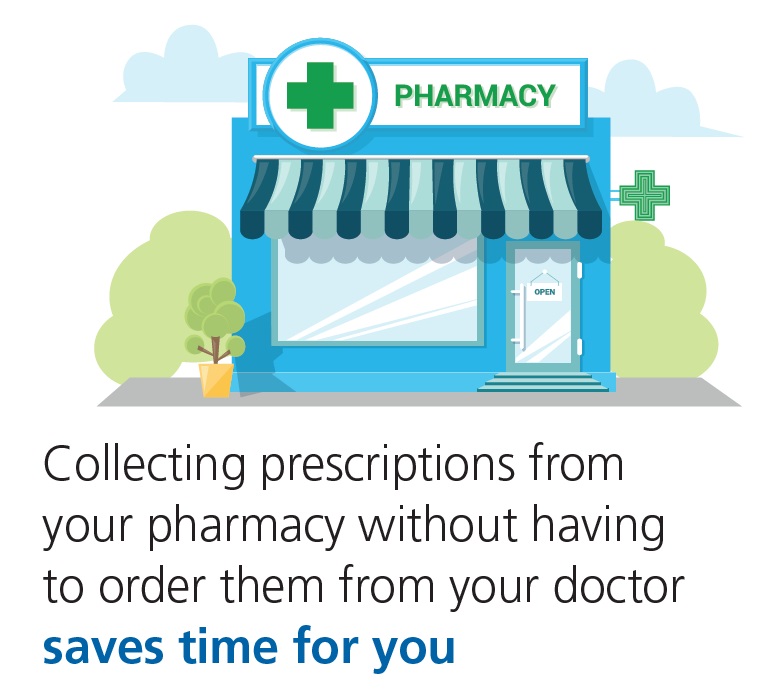
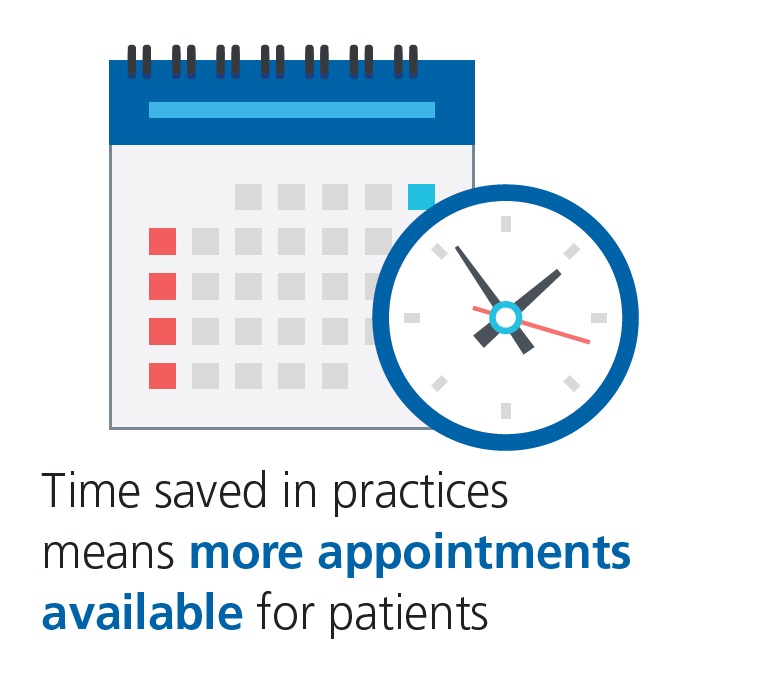
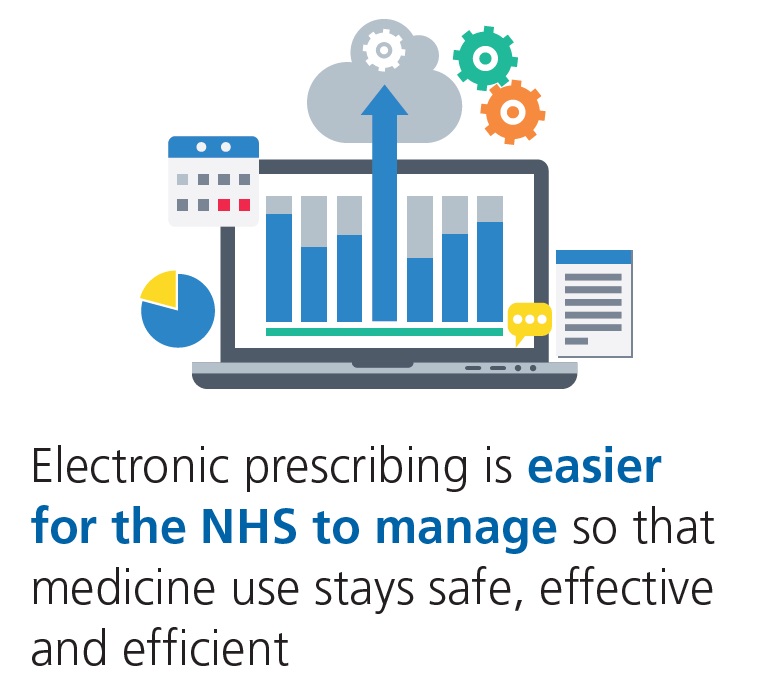
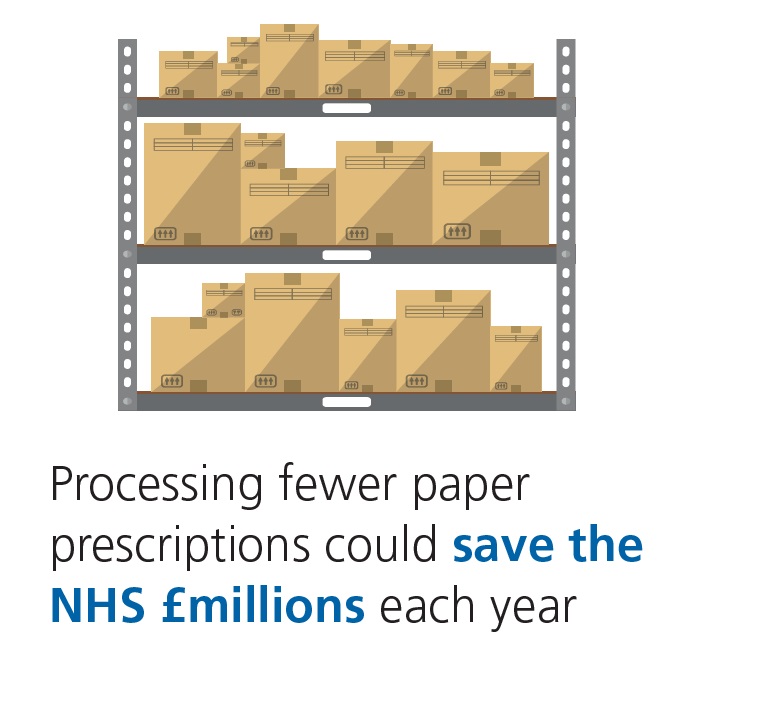
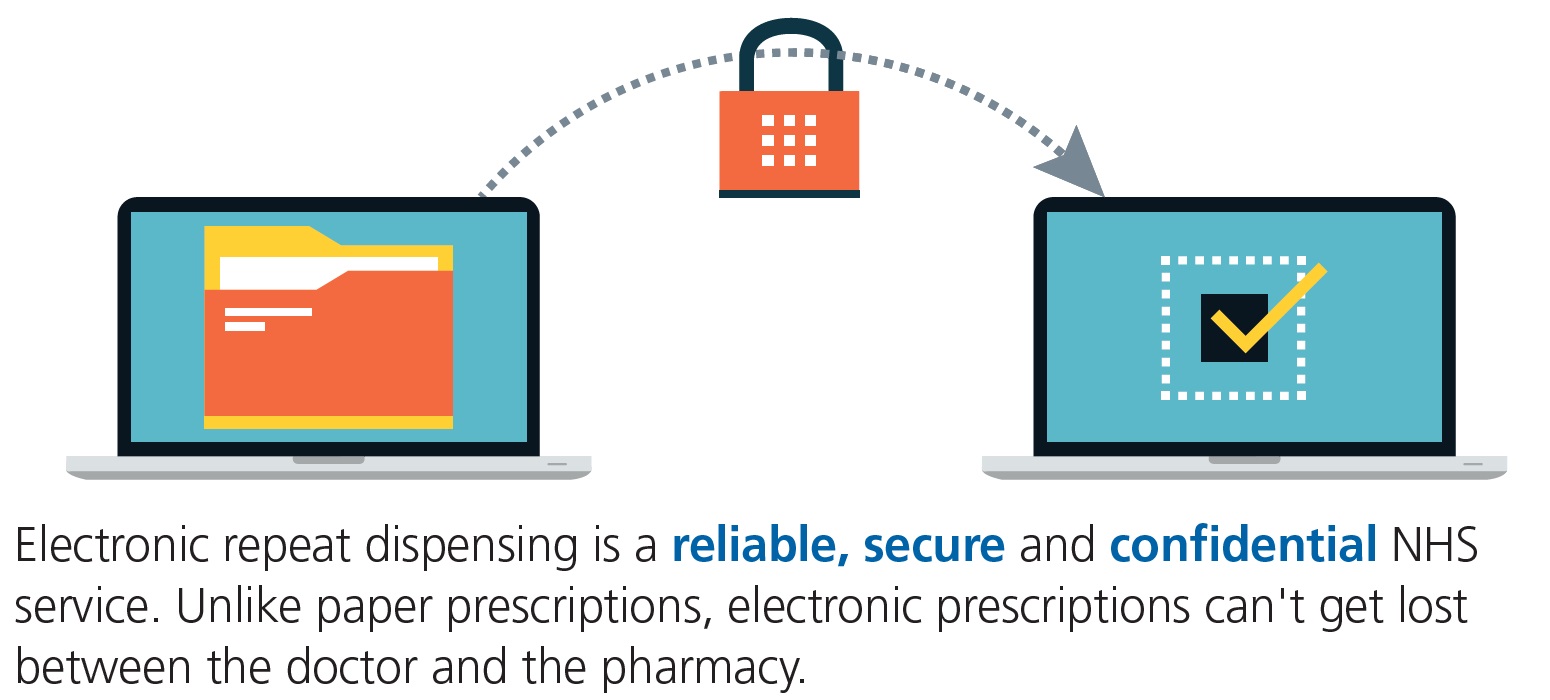
- Details


